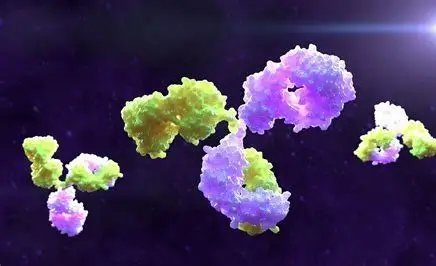Alphamab Oncology’s Bispecific ADC JSKN022 Clears IND Review in China
04 August 2025 | Monday | News

Image Source : Public Domain
Alphamab Oncology announced that the Investigational New Drug (IND) application for JSKN022, an independently developed innovative bispecific antibody-drug conjugate (ADC) targeting PD-L1 and integrin αvβ6, has been officially accepted by the Center for Drug Evaluation (CDE) of the National Medical Products Administration (NMPA). The Company plans to initiate a first-in-human (FIH) clinical study of JSKN022 for the treatment of advanced malignant solid tumors.
JSKN022 is an innovative bispecific ADC developed in-house with Alphamab's proprietary glycan-specific conjugation platform. The molecule simultaneously targets and binds to both PD-L1 and integrin αvβ6 on the surface of tumor cells. After binding to either target, JSKN022 enters the lysosome through target-mediated endocytosis. The cleavable linker is specifically hydrolyzed by proteolytic enzymes such as cathepsin B, releasing cytotoxic topoisomerase I inhibitor (T01), which then induces apoptosis of PD-L1 and/or integrin αvβ6 positive tumor cells. In addition, the inhibitor can penetrate the cell membrane and enter the antigen-negative tumor cells to exert bystander effects. These combined effects can effectively inhibit the growth of tumor cells.
At present, no ADC targeting integrin αvβ6 or PD-L1 has been approved for marketing worldwide, with all related investigational candidates remaining in clinical development stages. Preclinical data demonstrate that JSKN022 exhibits potent antitumor activity in both in vitro and in vivo models against tumor cells expressing integrin αvβ6 and/or PD-L1. JSKN022 will potentially bring in novelty in the therapeutic approach for cancers that are refractory or resistant to PD-1/PD-L1 inhibitors, including non-small cell lung cancer, head and neck squamous cell carcinoma, and colorectal cancer.
This Phase I clinical study will evaluate the safety, tolerability, pharmacokinetics (PK)/pharmacodynamics (PD), and antitumor activity of JSKN022 in patients with advanced malignant solid tumors who have failed standard therapies, and determine the maximum tolerated dose (MTD) and/or recommended Phase II dose (RP2D).
Most Read
- How Does GLP-1 Work?
- Innovations In Magnetic Resonance Imaging Introduced By United Imaging
- Management of Relapsed/Refractory Multiple Myeloma
- 2025 Drug Approvals, Decoded: What Every Biopharma Leader Needs to Know
- BioPharma Manufacturing Resilience: Lessons From Capacity Expansion and Supply Chain Resets from 2025
- APAC Biopharma Review 2025: Innovation, Investment, and Influence on the Global Stage
- Top 25 Biotech Innovations Redefining Health And Planet In 2025
- The New AI Gold Rush: Western Pharma’s Billion-Dollar Bet on Chinese Biotech
- Single-Use Systems Are Rewiring Biopharma Manufacturing
- The State of Biotech and Life Science Jobs in Asia Pacific – 2025
- Asia-Pacific Leads the Charge: Latest Global BioSupplier Technologies of 2025
- Invisible Threats, Visible Risks: How the Nitrosamine Crisis Reshaped Asia’s Pharmaceutical Quality Landscape
Bio Jobs
- Sanofi Turns The Page As Belén Garijo Steps In And Paul Hudson Steps Out
- Global Survey Reveals Nearly 40% of Employees Facing Fertility Challenges Consider Leaving Their Jobs
- BioMed X and AbbVie Begin Global Search for Bold Neuroscience Talent To Decode the Biology of Anhedonia
- Thermo Fisher Expands Bengaluru R&D Centre to Advance Antibody Innovation and Strengthen India’s Life Sciences Ecosystem
- Accord Plasma (Intas Group) Acquires Prothya Biosolutions to Expand Global Plasma Capabilities
- ACG Announces $200 Million Investment to Establish First U.S. Capsule Manufacturing Facility in Atlanta
- AstraZeneca Invests $4.5 Billion to Build Advanced Manufacturing Facility in Virginia, Expanding U.S. Medicine Production
News











